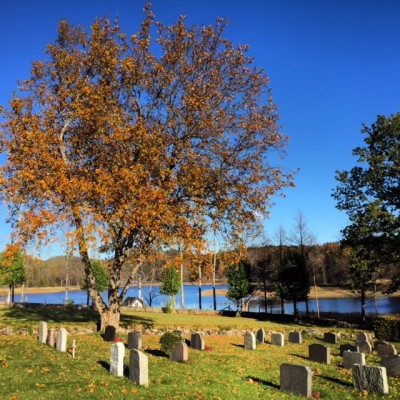Increasing numbers of Norwegians are opting against the traditional practice of holding funeral ceremonies when a family member dies. The reasons often are tied to family quarrels, a lack of contact, unwanted attention and the sheer cost of a funeral.

Norwegian Broadcasting (NRK) reports that around 10 percent of Norwegians now forego any funeral ceremony. “For some, it can be difficult to face other people because they’re in deep sorrow,” Marita Eikenes of the Fonus funeral agency told NRK. “Death is very intimate. The bereaved are in a very vulnerable situation.”
After cases of lengthy illness, family members can also be exhausted and simply don’t want to go through a ceremony, but Eikenes said that hostilities within a family and financial concerns are primary reasons for dropping a funeral, which can cost tens of thousands of kroner in Norway.
She said that when those left behind have little contact, won’t speak to each other or have very different ideas about how a funeral ceremony should be conducted, the funeral agencies try to suggest a solution.
“Sometimes it can be a challenge to agree on how the ceremony should proceed, how the dead should be buried or on other issues,” Eikenes told NRK. “Then we negotiate between the parties. If they still can’t agree, then the municipality decides where burial will take place.”
Gunnar Hammersmark, director of the Virke Gravferd funeral agency, said there are more “broken families” in Norway now than in the past, because of divorce and an increase in the numbers of partnerships people can have during the course of a lifetime. “There are more broken relations today, and sometimes families avoid letting it be known that family members have died,” Hammermark said. “And then they don’t want any ceremony.”
He said burials without ceremonies have increased in neighbouring Sweden and Denmark as well, with newspaper Dagens Nyheter reported they’ve doubled in Stockholm during the past two years. It’s also now possible to simply organize cremations and burials with funeral agencies over the Internet. In some situation, Eikenes said, the bereaved order a casket, transport of the dead and a cremation or private burial.
“Funeral traditions remain strong in Norway,” Eikenes said, “but the ceremonies that are held are changing. The new generation chooses more personal and individual features, we’re not so conformist any longer. And church is relatively unknown for most.” Hammermark agreed: “We often see memorial pages set up on the Internet and candles are lit. The need to show feelings connected to a death is stronger than ever.”
newsinenglish.no/Nina Berglund

